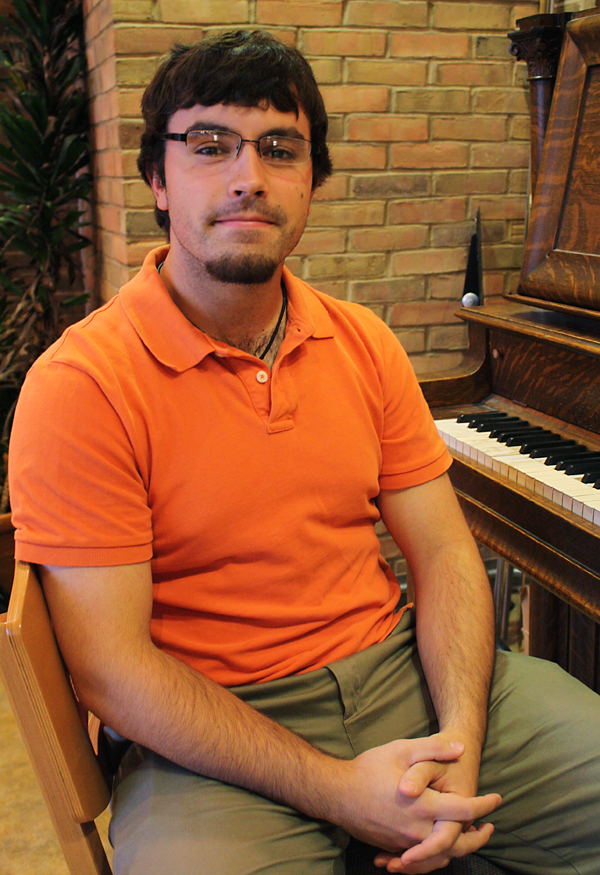As a kid, I often thought of myself as an eternal optimist. My childhood was bright and sunny with lollipops and daisies and all that fun stuff. It’s hard for me to remember ever feeling depressed. For me, God had always been a part of my life, and I rarely felt God’s absence. However, my mental landscape had been shifting coming into college, and as it did I became less and less secure of my optimistic view of reality and God. One night during my first year at Goshen, I went for a walk. I had no idea that the walk would challenge the foundations of my idealistic soul so inexplicably. For the first time in my life something was not right within me, and that night it all seemed to rise to the surface at once.
What happened to me on that walk remains one of the scariest experiences I’ve ever had. A dense and terrifying emotion confronted me that night. I had never felt anything like it before and have not felt anything like it since. The only way to describe it with words is that I felt absolutely and completely alone. I considered how limitless the universe seemed; I felt so minute I may as well have not existed at all. Perhaps for the first time in my life, I could not feel God. That night the eternal optimist shed rare tears.All was not lost, however. In fact, something beautiful happened. In the following weeks and months, I reflected on facing the brink of nihilism. Despite the vastness of the universe and how infinitesimally small I felt in comparison to it, I began to see beauty in all of it. There was something awe-inspiring about understanding that which I could never understand. As Socrates put it: “Wise is he who knows he does not know.” Thus, my entire mental landscape seemed to shift toward accepting this strange splendor and incorporating it into my own life philosophy. One of the first things I had to restructure during this shift was my idea of God.
The Bible says that we are images of God. Growing up in a Mennonite community, my idea of God coincided with this statement. God was always portrayed as a parent or a friend. Because of this, my concept of God was incredibly personified. Now, however, I don’t think I agree with the Bible’s description completely. For me, God cannot be personified. Few words can ever describe God.
Looking back on my late night experience, I realized that perhaps it wasn’t the absence of God that I felt. Perhaps that night I found out how incomprehensible God really is. Because of this, my “relationship” with God has been altered dramatically. God is no longer an entity that I communicate with rationally. God is instead a force or energy that I intuitively feel throughout the day. Understanding God as a constant presence is the farthest feeling from the terrifying loneliness I felt that fateful night years ago. The eternal optimist seems to have matured.


